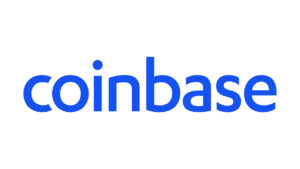
Coinbase eyes expansion with more blockchain use
By Aaron Michael C. Sy, Reporter
CRYPTOCURRENCY platform Coinbase is looking to expand in the Philippines by hiring a country manager as more Filipinos are expected to adopt blockchain technology.
“We are actively working to expand the Base team in the Philippines,” Jesse Pollak, Coinbase founder and executive team member, told BusinessWorld in a Zoom interview on Tuesday.
“We’re actually hiring right now a country leader for the Philippines. They’re going to be responsible for growing the on-chain economy and the Base economy in the Philippines. And then they’ll be building a team underneath them to assist with expansion,” he added.
“We’ve seen the Philippines leading in terms of… crypto adoption. It’s one of the largest crypto adopters behind India and Vietnam,” he added.
Filipinos have been using Stablecoins for remittances and payments due to lower transaction fees, Mr. Pollak said.
Coinbase has also seen Filipinos making profit off gaming on platforms like Yield Guild Games, which uses blockchain technology.
Mr. Pollak also expects blockchain to be used in artificial intelligence (AI), with agents using AI on crypto from a financial platform.
He also expects more companies adopting cryptocurrencies or blockchain-based digital assets due to benefits such as faster settlement, lower fees and more global access to capital.
Mr. Pollak added that the country’s regulatory efforts to create a framework for the use of digital assets by businesses is supportive of Filipinos’ adoption of blockchain technology.
“As we’ve seen around the world, governments and regulators are still trying to figure out how to engage with crypto,” he said. “There hasn’t always been a lot of clarity for builders about how they can use crypto to build businesses. And that’s been a thing that’s kind of slowed down innovation.”
“We’re excited about some of that progress happening in the Philippines. We understand that the Philippine Securities Exchange Commission is working on frameworks for digital assets and crypto and we’re excited to see that potentially come out later this year or early next year,” Mr. Pollak said.
“And we’re excited to partner really closely with them to figure out how to make that a framework that supports innovation, that supports developers,” he added.
The SEC told reporters in May it would release the regulatory framework for cryptocurrency assets and trading by the second half of this year.
“What we’re excited to see is more clarity around the kind of digital assets and more broadly, real-world assets, some of the earlier stage tokens, and figuring out how to balance this need to enable innovation while also protecting consumers,” Mr. Pollak said. “We want to make sure that we’re weighing both of those things as we’re making policy.”
He added that the country’s regulatory bodies could apply how Singapore’s monetary authorities have created their framework for Stablecoin issuers.
“Our thesis is that Stablecoins, like a Philippine peso Stablecoin, are going to be one of the most powerful tools for making the Philippine economy powered on-chain, bringing the speed, the ease of use and the cost reduction of the on-chain economy to the Philippine economy,” he said.
To boost the adoption of blockchain in the Philippines, Coinbase is working on educating those interested through its Buildathon event, which helps participants learn how to use and develop blockchain.
It is also improving its platform’s ease of use, aside from lowering fees. It is also looking to further integrate other products into its recently launched smart wallet, which allows users to use their Coinbase balance without transfers to a self-custody wallet.
Coinbase has an office in the Philippines with 250 employees.
